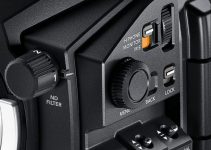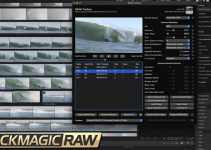If you are an independent filmmaker looking to build up your own kit you likely have one major factor to consider—budget. Cinema gear costs money. A lot of money. Fortunately there has been a huge push over the past decade to make high-quality equipment much more affordable.
Being spoiled for choice isn’t always the easiest though, cause now you will have to sort through a range of cinema primes before landing on which one might be the best for you.
Or, you can check out CVP’s overview of the top four budget cine prime lens sets that are designed for full-frame cameras.
There are four sets up for evaluation:
Pricing
Pricing is a good place to start when we are talking about budget lens sets.
Meike is the most affordable with each lens running around $1,000. DZOFilm is the next step up with each coming in around $1,399. Rokinon/Samyang price their XEEN CF at around $2,000 a lens.
Dulens is still up for preorder, but it is looking like pricing is going to be close to the Meike lenses at the bottom end of this list.
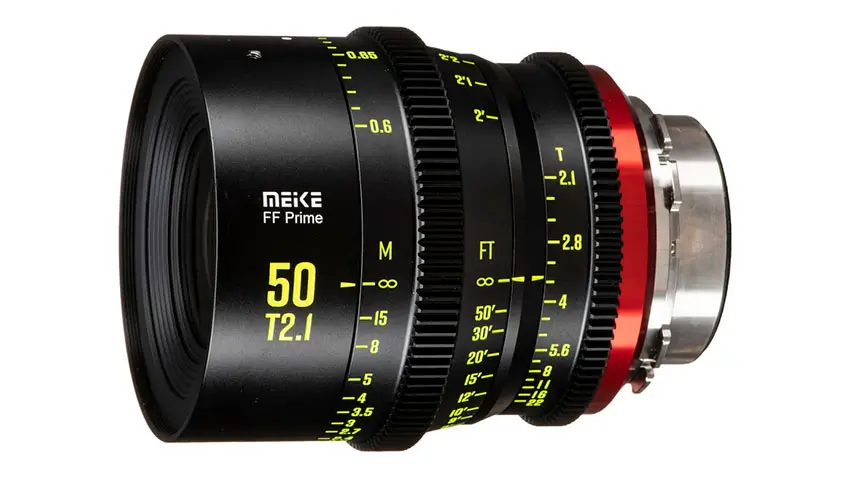
Image Credit: Meike
Creative Comparison
Kicking things off is a quick section with some footage from all the lens sets. Being careful to keep the framing and settings equal between the lenses they created a few different shots to demonstrate the aesthetics of each set.
This is going to come down to personal opinion at this point. Each has a somewhat distinct look, especially once you start looking at flaring. This is a must-watch section.
Focal Lengths
Let’s take a look at the list of offerings from each brand.
Rokinon’s XEEN CF set includes five lenses: 16, 24, 35, 50, and 85mm. All are T1.5 except the 16mm, which is T2.6.
Meike’s FF Prime has a total of six lenses: 16, 24, 35, 50, 85, and 105mm. All of these are T2.1 except, again, the 16mm which is T2.5. There is an upcoming 135mm T2.4 but there are no details yet.
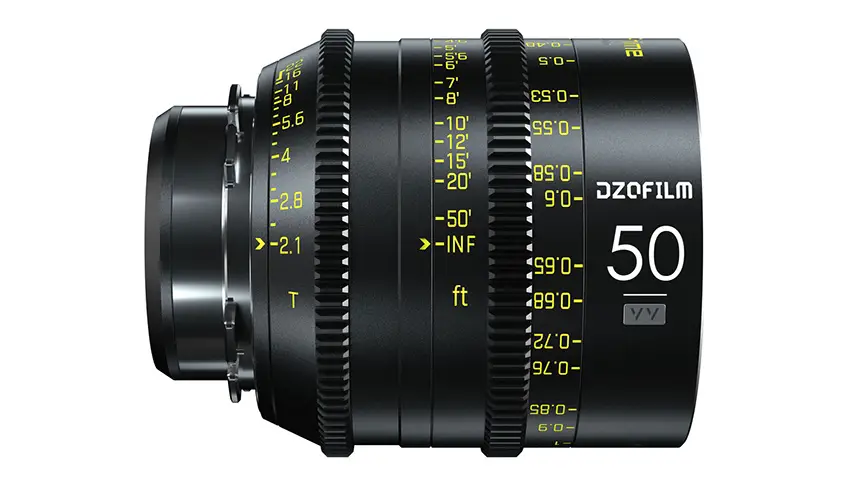
Image Credit: DZOFilm
Moving on to DZOFilm you’ll find the most variety with 10 lenses: 16, 21, 25, 35, 40, 50, 75, 100, 125, and 90mm. All of these are T2.1, except for the 16mm which is T2.8. There is another note with the 90mm being a T2.8 and also being a macro lens.
Dulens is the newest and hasn’t made too many different lenses yet only offering a total of three lenses: 43, 58, and 85mm. There is a 31mm on the way and every one is T2.4.
Apertures
DZOFilm obviously has the most and most are decently fast at T2.1 which matches up with a majority of the Meike line. Dulens is slightly slower at T2.4 and Rokinon is mostly faster at T1.5.
Lens speed can be a huge factor to consider.
Tied to that is the aperture design. The Meike, DZO, and Dulens all have 11-blade diaphragms while Rokinon upgraded to a 16-blade design. When stopped down this could results in rounder bokeh.
Size and Build
All the sets made sure to match up with themselves, so no matter what set you buy you’ll have a similar physical shape between all your glass.
Rokinon does have the largest lenses, likely thanks to that faster maximum aperture. And on the other end you have Dulens and Meike. Meike then loses on weight and that makes the Dulens the lightest and smallest.
This size can be a shortcoming as Dulens put the aperture ring far back on the lens, which can make it difficult to adjust or to mount a controller.
All the lenses should support matte boxes without issue. All except the XEENs have standard filter threads as well.
All do have standard 0.8 pitch gearing. The focus throws are different for each. Rokinon has 200º rotation, Dulens has 260º rotation, DZOFilm uses 270º rotation, and Meike has the longest throw with 330º of rotation.
Markings
Sometimes ignored when it comes to budget lenses, it is worth looking at the actual markings on the exterior of the lens.
Dulens, Meike, and DZOFilm have both imperial and metric markings while the Rokinon XEENs only have one or the other and you’ll have to pick when you purchase them.
Now for location. Meike only has them on the left, or operator, side.
Unfortunately, none of the lenses had markings that were dead on so shims or other adjustments might be worth it.
Mounts
There’s no point in finding the perfect lens if you can’t actually mount it on your camera.
Meike’s sets are available for ARRI PL, Canon EF, Canon RF, Leica L, and Sony E. The PL and EF mounts can be physically swapped. This is not the case for the mirrorless options.
DZOFilm only makes ARRI PL and Canon EF versions of the Vespids but they are interchangeable.
Rokinon has ARRI PL, Canon EF, and Sony E with kits available to swap the mounts.
Dulens sticks with just ARRI PL and can be swapped with a separately available Canon EF mount available.
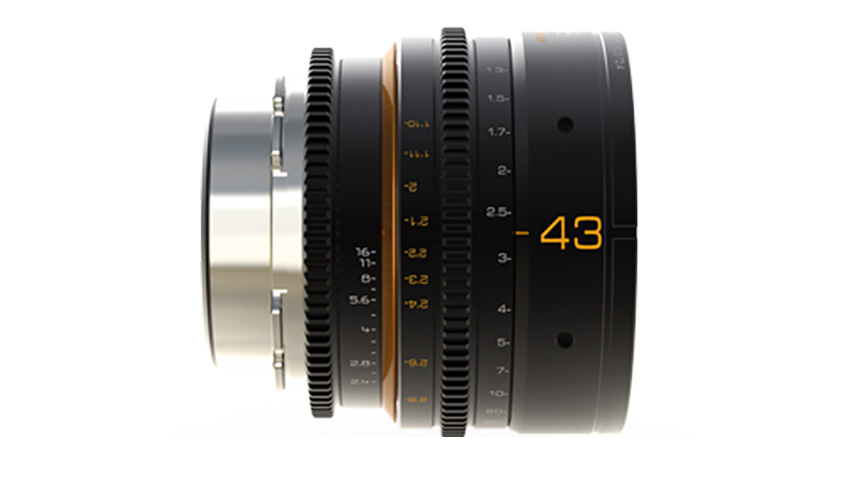
Image Credit: Dulens
You’ll have to be thoughtful about your choice. Going with PL or EF leaves the door open for adapters for working with many more cameras but there are benefits for mirrorless mounts being directly mounted.
Optics
There’s a lot to start talking about here.
Close focus goes to the Vespids and there is a dedicated macro in the bunch. Meike and Dulens are similar too. Everyone falls fairly close.
All the lenses are full-frame but they have slightly different image circles. Dulens actually comes in at the largest with 46.7mm, DZOFilm is close at 46.5mm, and then you have Meike at 45mm followed by Rokinon at 43.3mm.
To keep the video under control they focused on the 50mm and 85mm options, though they do have a full lens comparison tool on the CVP website.
Bokeh
Bokeh is usually a distinguishing part of a lens’s aesthetics. It is a very personal preference.
Dulens has some cat-eye and swirl to the bokeh as you move to the edges. This is common with large-format glass. The apochromatic design seems to hold up as there is very little chromatic aberration in the tests.
Meike is similar, though it does show more cutting across the frame and some texture. There is some green CA around the highlights.
Rokinon stands out a fair bit thanks to the wider maximum aperture. It also has heavy onion ring texture. Shape is good in the center and there is again swirling and cutting as you move to the edges. Edges of the highlights are defined with some green CA.
The DZOFilm Vespids are free of texture and show a small amount of green CA. These have the most misshapen bokeh of all the options.
Stopping down does help all the lenses quite a bit.
Lens Flare
Lens flare is another subjective area of interest with lenses.
They grabbed a flashlight, shined it right down the center of the lens and then moved it to the side to see how each reacts. You’ll just want to check this out and pick your preference.
Sharpness/CA
Using a VENICE 6K with the PL-mount versions of each lens they put them all up against a very tough resolution chart.
DZOFilm is up first with the Vespid 50mm and shows a little red and blue fringing just outside the center. It resolves decently across the frame but there is fringing on the corners. Stopping down helps but is still has the fringing.
Meike is sharper and has less fringing. The fringing is different with blue and yellow coloration which is less obvious. Stopping down helps resolution but not the fringing.
Rokinon’s XEENs are fastest and wide open at T1.5 they have great resolving in the center though there is strong fall off in the corners. It may not resolve as much as Meike but it has slightly less fringing.
Dulens wins with the least fringing but seems to have the lowest amount of contrast. It is still good but it drops off towards the corners.
Breathing
DZOFilm has the least amount of breathing but a far margin. The other three lenses seem to have a lot of breathing, at least with the 50mm.
Final Thoughts
You can’t go wrong with whichever choice you make here, but they are different and might be better off in certain situations.
The Meikes are slightly inconsistent across the set but resolve very well, have excellent breathing performance, and a great price point.
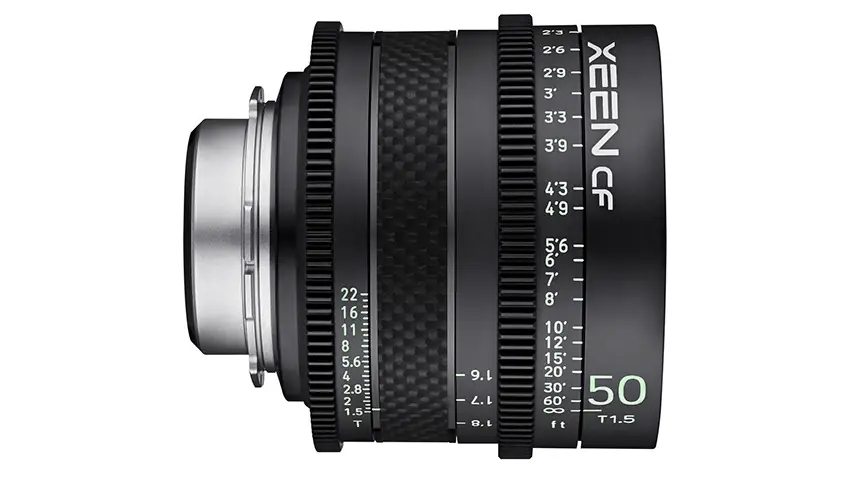
Image Credit: Rokinon/Samyang
Rokinon/Samyang have a very distinct look, the fastest apertures, largest size, and biggest price.
Dulens have a balance of character and resolving power plus they have an apochromatic design that dramatically reduces CA. They are also very small.
DZOFilm has the most variety with the Vespid set though they are a bit more creative with their look. They are built well and are popular.
So, which of these would you purchase?
[source: CVP]
Order Links:
- DZOFilm VESPID 16mm T2.8 Cine Lens (B&H, Amazon)
- DZOFilm VESPID 21mm T2.1 Cine Lens (B&H)
- DZOFilm VESPID 25mm T2.1 Cine Lens (B&H, Amazon)
- DZOFilm VESPID 35mm T2.1 Cine Lens (B&H)
- DZOFilm VESPID 40mm T2.1 Cine Lens (B&H)
- DZOFilm VESPID 50mm T2.1 Cine Lens (B&H, Amazon)
- DZOFilm VESPID 75mm T2.1 Cine Lens (B&H, Amazon)
- DZOFilm VESPID 100mm T2.1 Cine Lens (B&H, Amazon)
- DZOFilm VESPID 125mm T2.1 Cine Lens (B&H, Amazon)
- DZOFilm VESPID 90mm T2.8 macro Cine Lens (B&H, Amazon)
- Meike 16mm T2.5 FF Prime Cine Lens (B&H)
- Meike 24mm T2.1 FF Prime Cine Lens (B&H)
- Meike 35mm T2.1 FF Prime Cine Lens (B&H)
- Meike 50mm T2.1 FF Prime Cine Lens (B&H)
- Meike 85mm T2.1 FF Prime Cine Lens (B&H)
- Meike 105mm T2.1 FF Prime Cine Lens (B&H)
- Rokinon XEEN CF 16mm T2.6 Cine Lens (B&H, Amazon)
- Rokinon XEEN CF 24mm T1.5 Cine Lens (B&H, Amazon)
- Rokinon XEEN CF 35mm T1.5 Cine Lens (B&H, Amazon)
- Rokinon XEEN CF 50mm T1.5 Cine Lens (B&H, Amazon)
- Rokinon XEEN CF 85mm T1.5 Cine Lens (B&H, Amazon)
Disclaimer: As an Amazon Associate partner and participant in B&H and Adorama Affiliate programmes, we earn a small comission from each purchase made through the affiliate links listed above at no additional cost to you.


